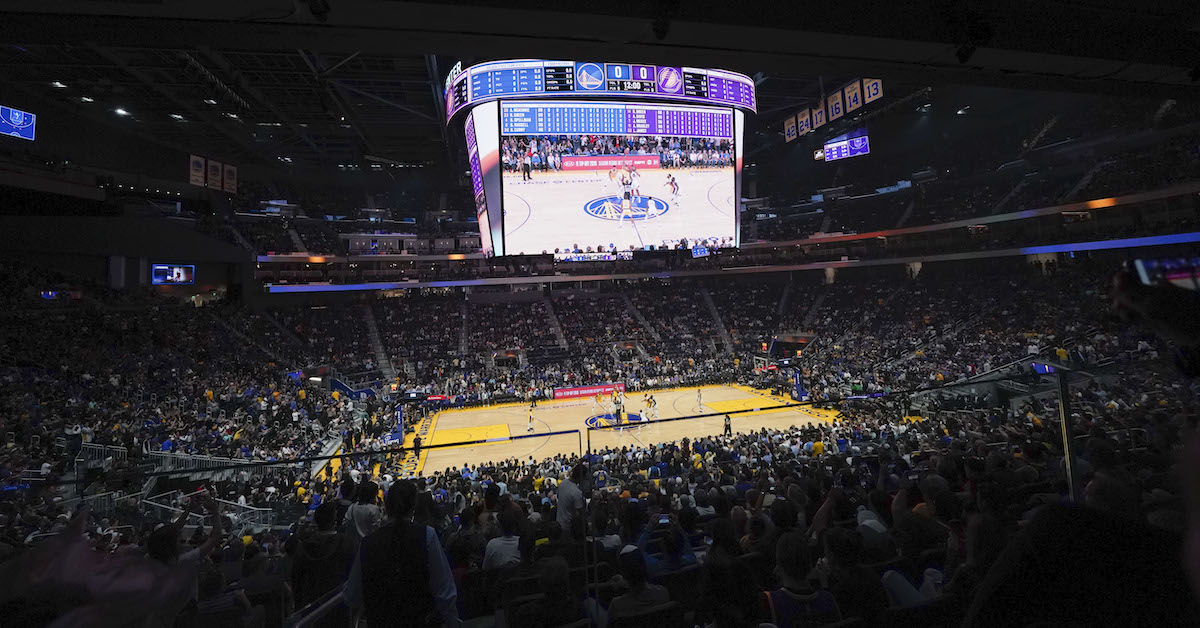World Cup won’t bring $700M economic impact to Nashville

Several sports economists who study the economic impact of sporting events believe a report showing a nearly $700 million economic impact for Nashville if it is selected as a host city for the 2026 World Cup was heavily inflated.
Nashville was one of the first nine potential sites visited by FIFA, which is international soccer’s governing body. A group visited the city Sept. 9.
FIFA lists 22 potential sites for the world’s biggest soccer tournament, which will be hosted by the U.S., Canada and Mexico, with 17 of those sites in the U.S. The tournament, which is held every four years, is set to expand from 32 to 48 teams for the first time in 2026.
An economic impact study released last week by the Nashville Convention & Visitors Corp estimated that having four games at Nissan Stadium in Nashville would bring 160,000 out-of-state fans to the area, spending an average $150 per night on entertainment outside of the matches.
“The $700 million number is insane,” said J.C. Bradbury, a sports economist and professor at Kennesaw State University in Georgia. “… That’s a lot of money. It’s not believable on its face. That these would all be net new people staying at the hotels, I absolutely do not buy that based on other research, and we should be seeing in other studies of (previous) World Cups these super-large economic impact effects.”
The $700 million estimated impact for Nashville in the Nashville Convention & Visitors Corp report is more than estimates for entire previous host countries, Bradbury said.
The report estimated fans would pay for about 120,000 hotel rooms for an average of five nights at an average cost of $300 per night.
E. Frank Stevenson, the chair of the Department of Accounting, Economics, and Finance at Berry College in Georgia, has studied hotel economics at large events such as the Super Bowl and national political party conventions. Nashville also is reportedly a finalist for the 2024 Republican National Convention.
Stevenson called the World Cup five-night stay in the Nashville Convention & Visitors Corp report a “pretty aggressive assumption” and said if 120,000 extra rooms actually were booked in Nashville during that time, “that would crowd out a lot of people who are already there. Nashville hotels are doing pretty well already, particularly in summer months.”
Stevenson said in summer 2019, before the COVID-19 pandemic, rooms were 76% to 77% full in Nashville in July.
“There’s not a lot of slack in the system,” Stevenson said.
Stevenson’s study on Super Bowl city hotel stays showed that nearly 90% of the increase in hotel revenue during the average two- to three-night stays were because of price increases. With most hotels owned by chains, that money most often would flow immediately out of Nashville and Tennessee and head to a company’s corporate headquarters because, as Stevenson noted, the increased rates don’t come with raises for local hotel staffs.
The increase in World Cup hotel stays more likely would crowd out those who would come to Nashville for other entertainment or vacation reasons during the summer, Stevenson said.
“Some of those might come a few weeks earlier than they would otherwise … so maybe the crowd out isn’t 100% completely lost, but the net gain is probably considerably less than the 120,000,” Stevenson said.
Victor Matheson, a sports economist at the College of Holy Cross in Worcester, Massachusetts, is a soccer fan who attended matches during the 1994 World Cup in the U.S. and wrote a study on the economic impact in the host cities.
Matheson said the estimate of Nashville earning $150 million to $200 million per match it hosts is “wildly crazy.”
“Not every game is going to be England vs. Germany … that have either a huge number of domestic fans in the United States who are going to travel for it or people who are going to come from Germany or from England to go to the game in Nashville,” Matheson said. “So a large number of the fans there are going to be local or semi-local.”
William F. Fox, the director of the University of Tennessee-Knoxville’s Boyd Center and author of the Nashville World Cup impact report, said the visitor estimates were “out-of-state visitors, not in-state fans. We assume these visitors (many of whom may come from other countries) would not otherwise be in the Nashville area. We assume there is sufficient capacity in the hotel, restaurant, entertainment, etc.”
Matheson, however, believes a large contingent of fans will be in-state soccer fans who won’t stay overnight and will spend money at Nissan Stadium and the surrounding area that they would have spent elsewhere in the state. Matheson said he did that in 1994, attending World Cup matches in Chicago and Detroit without an overnight stay.
“The people from Chattanooga aren’t going to come and spend huge amounts of money,” Matheson said. “They are going to stay overnight maybe one night or not at all. … You get a game like Cameroon/Jamaica, you are not going to get 30,000 folks from Cameroon coming over and spending a week in Nashville so that they can watch a game.”
Matheson said his study on the 1994 World Cup showed some host cities, such as Orlando, Florida, had worse economic performance than they were predicted to have without the tournament because of the crowding out of Orlando hotel rooms with soccer fans instead of theme-park visitors.
Matheson said Super Bowl impact reports often have large numbers before the event, but the real numbers are closer to $30 million to $130 million of added economic activity.
“Even if you take the highest of those numbers, that doesn’t equal what Nashville thinks it’s going to get for these soccer games,” Matheson said. “The World Cup is an awesome event, but it’s not a Super Bowl in terms of economic impact, and it’s certainly not a Super Bowl for the four games that you’re going to get.”
Fox’s report said construction to meet World Cup venue, fan fest and overall standards would cost $15 million, which would be privately funded. He also estimated the event would support 5,469 annualized jobs, with more than 5,000 of that related to spending off site related to the event.
Fox also estimated that the event would generate $66.1 million in tax revenue with $45.9 million coming from sales tax revenue, $10.8 million from hotel/motel tax revenue and $9.4 million in other tax revenue.
“We measure the new tax revenue but do not seek to distribute it between the various public recipients,” Fox said.
After a bill that passed the Tennessee Legislature and was signed into law by Gov. Bill Lee last year, however, the Metro Nashville Sports Authority will retain all of the sales tax from events and merchandise sales at the stadium and 50% sales tax revenue on any new development at East Bank, 130 acres of land near Nissan Stadium.
Those funds will then be used to pay for debt on Nissan Stadium, where the Titans are reportedly in negotiations with Nashville on $600 million in upgrades.
This article was originally posted on World Cup won’t bring $700M economic impact to Nashville



